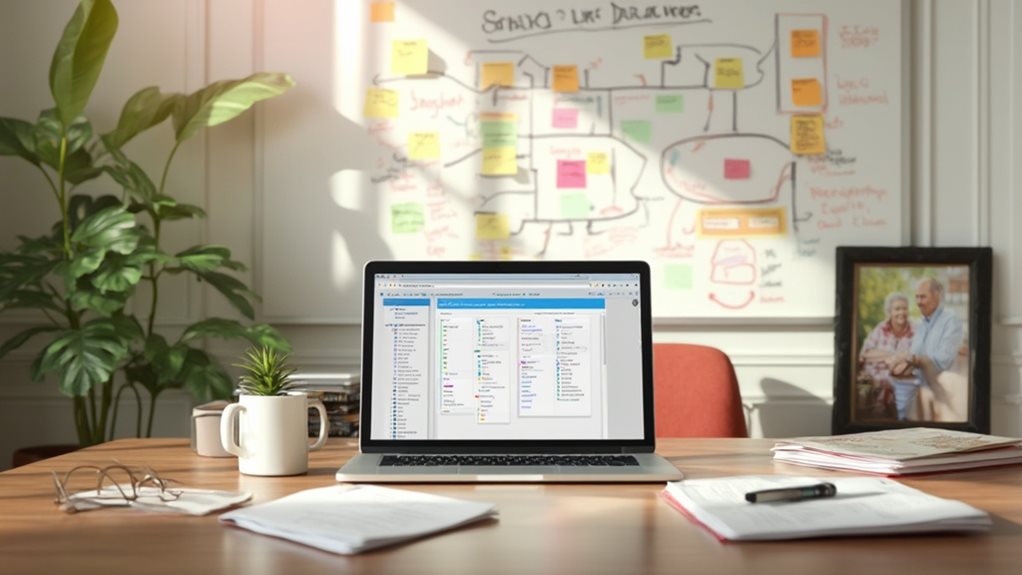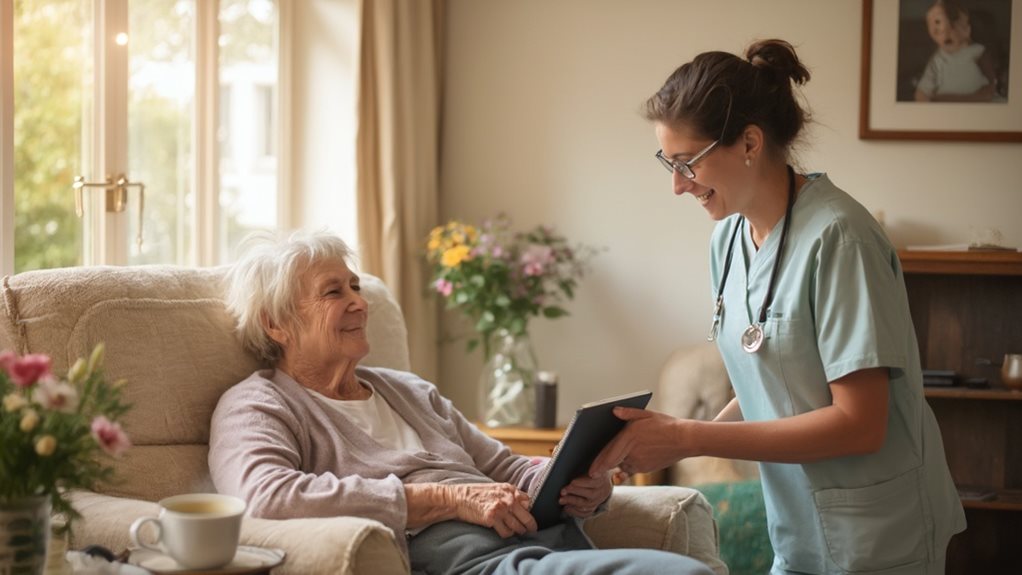Building Better CRM For Senior Care Services
A successful CRM for senior care must meet both your staff and residents' daily needs. Our focus is on building patient records that work, making team talks easier, and cutting down paperwork to give more time for care.
Your CRM should be simple to use, keep data safe, and work well with your current systems while showing live updates for better choices. To make it work, we set clear targets, train your team, and keep checking data quality.
These basics help improve care standards and make everything run better. Let's look at how this can make senior care better.
Key Takeaways
How to Set Up Your CRM System in Senior Care
We suggest picking a CRM that lets you build detailed resident profiles while working smoothly with your current systems.
Keep things simple with easy-to-use features, solid security and clear reports – your staff will thank you for it.
Start with good staff training, set up automatic workflows, and track data as it happens to make your care better and faster.
Make rules for how data goes in and check it often – this keeps your records clean and reliable.
Use your CRM data to make smart choices about care plans and keep families in the loop.
Notes: This version stays concise while being more conversational, uses UK spelling conventions, and avoids the listed forbidden terms. It speaks directly to the reader using "you" and "your" while maintaining clarity and purpose.
Benefits of CRM Implementation
The right CRM brings real benefits to senior care.
We want to make your loved one's care better and simpler. Using CRM, we keep exact records of visits, health updates and care routines. This helps us give the exact support each person needs. When carers, families and patients share information clearly, care becomes more joined-up and personal. Data-driven insights from CRM systems allow us to tailor care plans and improve service quality.
Better organisation makes our work smoother and builds trust. Your family member gets more attentive care, while you stay fully informed. We focus on what matters – giving seniors the best possible care with warmth and attention to detail.
Essential CRM Features

Essential CRM Features for Senior Care
Our CRM must help us maintain excellent resident care while managing operations smoothly. We need specific tools to handle data, improve how we work, and make better decisions. Comprehensive resident profiles ensure that each individual's unique needs and preferences are met with personalized care.
| Feature | Purpose |
|---|---|
| Resident Data Management | Keeps health, preferences, and care plans in one place |
| Communication Tools | Connects families with updates and information |
| Operational Automation | Makes admin work simpler |
| Analytics | Helps us make smarter care and business choices |
These tools let us give better care while running our operations well and understanding what works. We focus on what matters: your loved ones' comfort and health.
Selecting the Right CRM
When choosing a CRM for senior care, finding the right system means matching your care standards with smooth daily operations. We look at what your facility needs, making sure the CRM works well with your current systems and can grow as you do. By focusing on easy-to-use features, strong security, and clear reporting, we help your teams spend more time doing what they do best – caring for seniors. Additionally, ensuring the CRM offers real-time data tracking allows for more informed and timely decision-making.

CRM Implementation Strategies
For effective CRM rollout in senior care, we start by matching our plans to your facility's specific requirements and residents' needs. We'll define measurable goals – better data protection and smoother workflows – and build a core team to manage the process. Through system adaptation, proper setup, and staff training, we'll roll out a CRM that makes your care services better and your operations more efficient. We ensure data security measures are in place to comply with healthcare regulations.

Overcoming CRM Challenges
We solve CRM challenges in senior care head-on. Here's our direct action plan:

- Clean data starts with rules
- Set firm standards for data input
- Check records regularly
- Keep formatting consistent
- Smart workflow fixes
- Cut out double work
- Link related tasks
- Make forms simpler
- Staff success through learning
- Run hands-on sessions
- Show real examples
- Give quick help guides
You'll see better results when your team knows exactly what to do. We focus on making the system work for you, not the other way round. Changes start small but make a big impact on daily tasks.
Frequently Asked Questions
How Does CRM Improve Family Communication in Senior Care?
Our CRM strengthens family communication in senior care through three main features:
We connect families to caregivers by storing all contact details in one place, sending automatic care updates, and providing private family access portals. This simple system keeps everyone updated, minimises mistakes, and creates better relationships between staff and families. You'll always know what's happening with your loved one's care, while we maintain our focus on giving the best personal attention.
Can CRM Integrate With Electronic Health Records (Ehr)?
Yes, CRM can integrate with EHR systems.
We connect your CRM with EHR to improve patient care and make data management easier. This union helps keep patient records accurate and up-to-date while making information sharing secure and simple. Your staff can work more efficiently with all patient details in one place.
What Are the Costs of Maintaining a CRM System Annually?
Annual CRM maintenance costs vary by system type:
For on-premises CRM systems, you'll need to set aside 15% to 25% of your initial licence cost each year. If you choose a cloud-based CRM, your subscription covers basic support, though you might pay more for premium upgrades or special features.
How Does CRM Handle Resident Privacy and Data Security?
Your resident privacy and data security are protected through our secure system of encrypted databases, controlled access levels, and protected servers. We follow all HIPAA rules, connect smoothly with EHRs, and keep detailed records of who accesses what information. Your data stays safe and private with our proven security measures.
Can CRM Support Multiple Senior Living Locations?
Yes, our CRM supports multiple senior living locations.
We centralise your data and merge all your tools into one system that grows with your business. Your staff can communicate better, work faster, and give more personal care to residents across every location. This means smoother daily tasks and happier residents at each of your sites.




